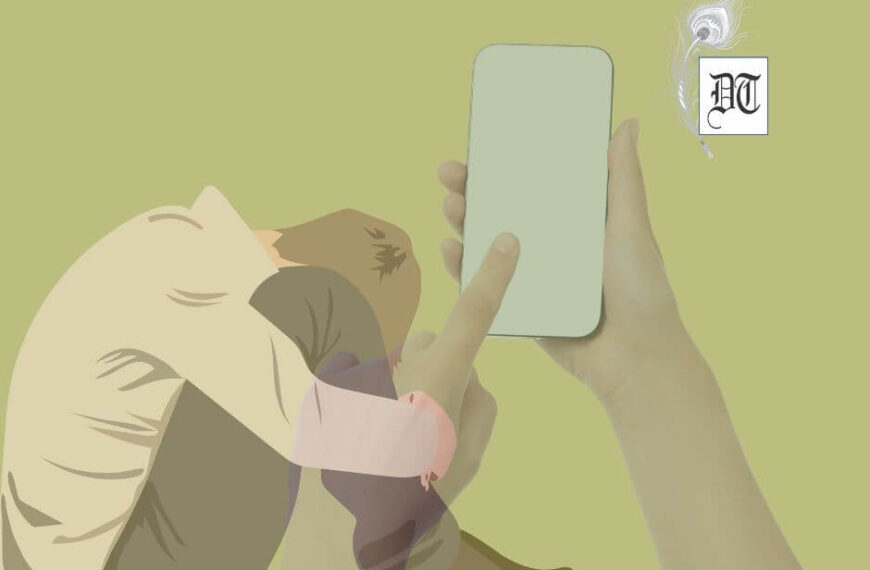Addiction can have some serious psychological manifestations. A psychological addiction refers to how the individual is mentally dependent on certain behaviours. Kavita, a Hyderabad-based, clinical psychologist, dwells on the issue of addiction, in the weekly column, exclusively for Different Truths.
Addiction can be defined as the continued use of a mood altering substance or behaviour despite adverse consequences. A psychological addiction refers to how the individual is mentally dependent on certain behaviours.
Every addictive act is preceded by a feeling of overwhelming helplessness or powerlessness. Addictive behaviour reverses these underlying feelings of helplessness. The behaviour to be able to do this because, taking an addictive action is a way of doing something that person expects, will make him feel better, in an act that is completely in his own control. Hence this action creates a sense of being empowered, of regaining control against helplessness.
Psychological Manifestations of Addiction
- Excessive use of painkillers: People who pop in painkillers at the slightest of discomfort or pain in the body can get addicted to it. Overuse of painkillers can lead to serious heal
 th issues.
th issues. - Compulsive use of pain balms: Balms and pain relief creams, often with pungent odour, are used by people every day for inducing sleep, due to getting accustomed to their smell. This could lead to skin rashes and infections when used continuously.
- Shopping: Shopping addiction is the compulsion to spend money, regardless of need or financial means. The addict may be addicted to a certain product, such as clothes or jewelry, but she may also buy anything from food and beauty products to stocks or real estate. These shoppers experience the same “high” from making purchases as a drug addict gets from drugs. Once the brain associates shopping with this pleasure or high, the addict tries to re-create it again and again.
- Theft: People, who are addicted to shoplifting or theft, tend to attempt it almost everywhere, be it in a shopping area or someone’s house. The sense of an achievement obtained, free of cost, leads to a pleasurable state, impelling him to re-attempt it very often.
- Food: Food addiction is a real addiction, just like those related to drugs and alcohol. It most often shows up as a compulsive need to eat, even when you are not physically hungry. A food addict typically struggles with binge eating on a day-to- day basis. Food addicts have a tough time controlling their eating, despite their desire to stop, due to the pleasure factor involved.
- Watching T.V: The compulsive need to watch the television, from the moment one wakes up till he sleeps, can be called an addiction. Waking up in the middle of the night to watch T.V, to ease anxiety is one symptom. Living in fantasy away from reality, leads to sensations of pleasure, for some people.
- Clutter: Some people feel cozy living around clutter. A clean surrounding may lead to feelings of anxiety, reminding them to clean the place often. To avoid this, they accumulate clutter and derive a sense of satisfaction and pleasure, lowering their anxiety levels.
- Work: Bringing home work when not necessary or urgent, just to remain occupied mentally and physically create workaholics. These people work continuously, late into the nights, skipping meals, social or family gatherings under the pretext of working. They tend to become loners, as they don’t socialise much. This can have serious health (physical and psychological) implications.
- Sugar: The craving for sweet taste can become a serious addiction if not controlled. People with a major tooth are at a high risk of getting addicted. In some cases where sweets are not available, people make do with eating sugar and jaggery. This can lead to illnesses.
- Chocolates: Chocolates are loved by all, be it adults or kids. Some people stock up their refrigerators with chocolates, so that they can binge on them every day. Chocolates release a feel-good hormone, hence its consumption leads to feelings of joy and bliss. But when this consumption replaces normal food, it can be called an addiction.
- Anger: When an incident, often perceived as a threat, triggers the feeling of anger (very often) within you, and you react, by screaming shouting, hitting, throwing things around, or on people, it is known as being angry. Anger that is not controlled can have serious implications. It could lead to somebody getting hurt or killed, jail, child abuse, loss of job, marriage problems or divorce, ulcers or depressions, heart trouble and the like.
- Fear: When fear is the first reaction in all situations, the person can be said to be addicted to fear.
- Internet, sex, porn: Excessive use of internet to surf porn sites, phone sex, chat rooms for virtual sex are increasing by the day. Crimes are increasing in this connection. Masturbating excessively, unable to control the sexual urge can lead to a sex addiction.
Psychological manifestations of addiction can have serious implications and are usually addressed by counseling, therapies and medication.
©Kavita Paynam
Photos from the internet.
#Addictions #AngerAddictions #FoodAddictions #HelpForAddiction #RecognisingAddition #AddictiveBehaviour #ChocolateAddiction #ShoppingAddition #SexAddict #PshycologistsNotebook #DiffererntTruths










 By
By
 By
By
 By
By
 By
By